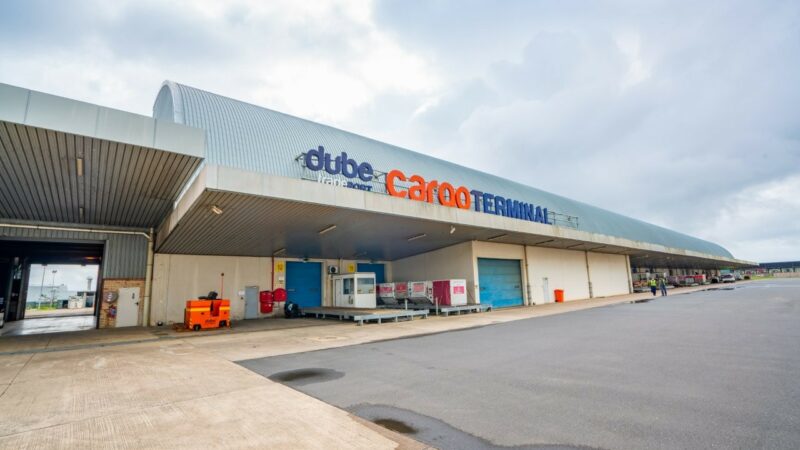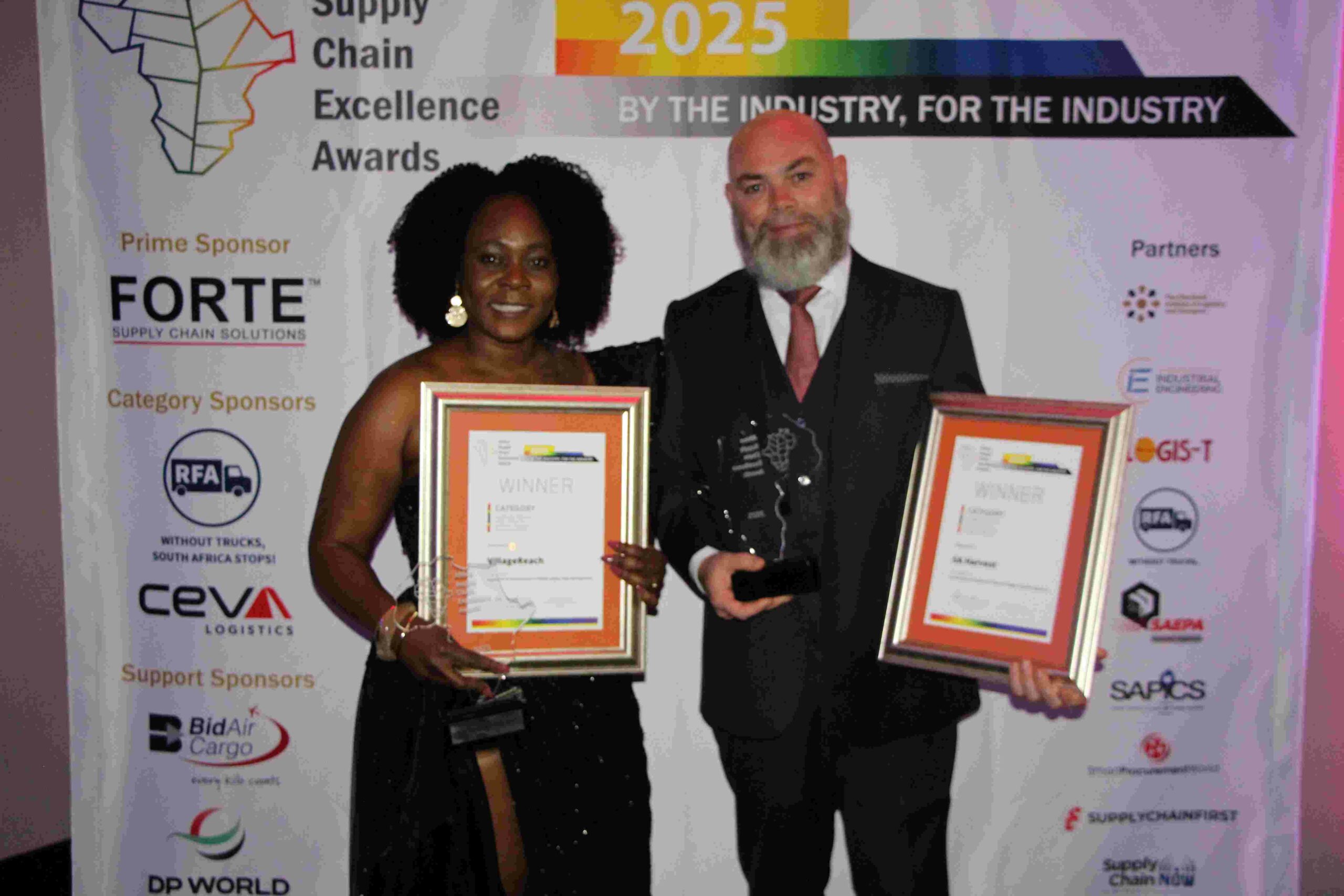SUPPLY CHAIN OPTIMISATION OFFERS BIG BENEFITS FOR RETAILERS

The prevailing business environment is more volatile, uncertain, complex and ambiguous (VUCA) than ever before, and today’s consumers are more demanding and unpredictable. To keep customers satisfied and to ensure that the right goods are available where and when they are needed, regardless of the latest local or global disruption, supply chain management has become more important than ever for retailers.
Recognising this, the organisers of the upcoming SAPICS Conference, Africa’s leading event for the supply chain profession, have lined up numerous retail and consumer goods focused presentations. Hosted annually by SAPICS (The Professional Body for Supply Chain Management) since 1975, this year’s SAPICS Conference features an exciting collaboration between SAPICS and the South African Association of Freight Forwarders (SAAFF), which will co-host the event.
The Conference will see hundreds of supply chain practitioners from around the world – and from the host of diverse sectors that supply chain touches – converge in Cape Town from 11 to 14 June 2023 to learn, network and share knowledge. Inventory optimisation, demand-driven material requirements planning (DDMRP), collaboration, sustainability, supply chain agility, digitisation, Africa Free Trade Agreement, public health supply chains and warehousing are just a handful of the important topics on this year’s programme, with experts and industry leaders sharing their knowledge, expertise and experiences.
“Collaboration is vital in a world where disruption to supply chains is a daily occurrence. By forging closer working relationships, it is possible to ensure on shelf availability in the FMCG market while achieving cost savings.” This is the contention of Dave Hallett, supply chain director at PepsiCo and a presenter at this year’s 45th annual SAPICS Conference. He is a senior supply chain specialist with extensive experience in the FMCG industry. “When suppliers and customers fail to collaborate, and work in isolation to optimise their networks, costs are increased,” he asserts, and notes that navigating this space fairly means understanding each customer’s needs, strengths and weaknesses and working together to unlock mutual benefit.
Hallett will share the stage at the 2023 SAPICS Conference with co-presenters Silindile Manyoni, senior customer collaboration manager at PepsiCo, and Nomkhosi Ncube, who is the supply chain customer collaboration manager. In their presentation on supply chain customer collaboration, they will share the journey of building new capability in PepsiCo to collaborate with customers by providing differentiated offerings that deliver mutual benefits. They will explain why collaboration with customers enables service level improvement and joint value creation, and how communication is a key in building a foundation of trust for customer collaboration.
An inspiring tale about evolution, supply chain adaptability and agility, featuring global mayonnaise giants, demanding consumers and a little newcomer condiment, will be shared at the conference by Paul Raphaely, marketing director at NOMU South Africa. It is the story of NOMU’s new “MAYU”. Raphaely has an entertaining explanation of the events that inspired his not to be missed presentation: “In the beginning, the mayonnaise giants roamed the earth. They were big, they were tangy, most were creamy, and some were imported. Then one day, following biblical floods, some rioting, a crumbling of international shipping and a general ‘reluctance’ in the local population of retail buyers, one of these giants decided to migrate, permanently. Into the gap created by this stepped a less-experienced upstart, annoyed with the probability that it would now have to make its own mayo. This upstart was so annoyed, in fact, that it made a throwaway joke about the idea, near a bubbling lava pit called the South African mayonnaise-eating population. Once the volcano that followed immediately eventually calmed down, four weeks later South Africa’s first ‘crowd-sauced’ mayonnaise was born.”
The lessons that Raphaely will offer SAPICS Conference delegates include how tactical advertising works; why “MAYU” happened; how to manage scarcity as a marketing device; and how to leverage public opinion into a finished product.
“Managing in a Supply Constrained Environment” is the title of the presentation by Erik Bush, the CEO and co-founder of United States based Demand Driven Technologies. “Driven by the COVID-19 pandemic, severe supply constraints have created significant challenges for supply chain executives and managers across the globe. The resulting backlog of demand for finished items impacted by supply constraints has made it exceedingly difficult for companies to maintain customer service levels and stabilise operations,” Bush notes. At this year’s SAPICS Conference, he will lead a discussion on the core issues that companies face when encountering supply constraints from their vendors. He will help delegates to understand why inventory levels can grow despite supply constraints, and he will offer a range of tactics to increase control of inventory levels and the supply chain while improving operational performance.
Dikaledi Sathekge, head of planning and digital transformation at Takealot, is on the 2023 SAPICS line-up with a presentation outlining Takealot’s journey in the adoption of DDMRP. “The implementation of any new methodology and system is no simple task. It is a coordination of people, process and technology all through a symphony of change management,” she notes. Takealot started its DDMRP journey in 2020. Almost three years later, Sathekge says that it has delivered numerous positive benefits including improved service to customers, inventory optimisation and growth. She will share the wins and learnings with delegates at the SAPICS Conference.
The special half day warehousing workshop on the programme at this year’s SAPICS Conference will take an in depth look at the anatomy of warehouse excellence and examine cutting edge warehouse technologies and the strategies and the best practices for future-proofing supply chains.
The latest tools and technology to drive innovation and improve collaboration between retailers’ central planning and store teams will be showcased at this year’s SAPICS Conference. These include solutions to help retailers and consumer goods companies to optimise their operations and planning processes, to drive increased sales and waste reduction for stores and distribution centres.
For further information, or to register for the 2023 SAPICS Conference, call the Conference Secretariat at Upavon Management on 011 023 6701 or email info@upavon.co.za. Up-to the-minute information is also posted on the SAPICS conference website: https://conference.sapics.org/
Photo : 2023 SAPICS Conference speaker Paul Raphaely, marketing director at NOMU South Africa.
ABOUT SAPICS: http://www.sapics.org
SAPICS’s mission is to elevate, educate and empower the community of supply chain professionals across Africa.
Since its foundation in 1966, SAPICS, The Professional Body for Supply Chain Management, has become the leading provider of knowledge in supply chain management, production and operations in Southern Africa. SAPICS builds operations management excellence in individuals and enterprises through superior education and training, internationally recognised certifications, comprehensive resources and a country-wide community of accomplished industry professionals. This community is ever expanding and now includes a multitude of associates in other African countries as well as around the globe. SAPICS is proud to represent the Association for Supply Chain Management (ASCM) as its exclusive premier channel partner in Sub-Saharan Africa.
The annual SAPICS Conference is the leading event in Africa for supply chain professionals. The 2023 SAPICS Conference takes place from 11 to 14 June 2023 at Century City Conference Centre, Cape Town, South Africa.
ABOUT SAAFF: https://saaff.org.za/
The South African Association of Freight Forwarders (SAAFF) was established in 1921. For more than a century, SAAFF has played an essential role in freight forwarding and international trade, with members facilitating these activities through their dedicated involvement in the management of transportation, customs clearing, documentation, third-party payments, and many other elements of the international supply chain.





